
Jeff Garrison
Skidaway Island Presbyterian Church
July 19, 2020
Matthew 13:24-30, 36-43
Opening of Worship: Nothing needs reforming as much as other people’s bad habits.” That’s probably Mark Twain’s most quoted saying. It rings true. It’s easy to see where someone else is wrong and to ignore our own blind spots. We want everyone but ourselves to clean up their act, forgetting the log in our own eyes.[1] Today, we’re looking at another parable from the 13th Chapter of Matthew. Like last week, it focuses on agriculture. This second “big field” parable is about the weeds growing within the wheat. We want everything to be pure, but at what cost? This morning, ask yourself if we really think we’re capable of being an honest judge?
###
I was gypped as a child. I don’t remember a sermon on this text. This scripture could have been added to the arsenal I used to make a case for not chopping weeds in the garden. I wasn’t a biblical literate child.
However, I am not sure this reason to not to pull weeds would have worked any better than when I told my siblings that the Bible said they should respect and obey me since I was their elder. Two things you can take away from this: using the Bible for our own self-fulfillment is dangerous, and the Bible is not a “how-to-farm” manual.[2]
Jesus tells this parable because he knows we’d like nothing more than to clean up other folk’s lives and when we attempt to do this, we often create a mess. If the church had paid a little more attention to this parable, we’d have had fewer headaches. Crusades, witch-hunts, inquisitions, and other quests for purity that have given the church black eyes and created massive suffering could have been avoided.
This parable is about the church.[3] We could easily place ourselves in the role of the farmhands who inform their boss of the problems going on in the back 40. “There are weeds in the wheat.” It’s a terrible thing… What should we do about it?
When I was in seminary and working for a church in Butler, Pennsylvania, I took the youth skiing one Saturday. The kids could invite friends. Ryan invited a friend who attended a very conservative church. In our group was another kid named David. This was back in the mid-80s. David was a “skater” and a problem child. On this particular day, it took him only an hour or so for the ski patrol, who had called him down a few times, to revoke his skiing privileges. David got to spend the rest of the day sitting in the lodge with a mother who didn’t ski, but volunteered to come along as a driver, to fix our lunch, and watch over our stuff. I’m not sure if she realized watching over our stuff including sitting on David.
After lunch, I spent some time skiing with Ryan and his friend. Riding up on a lift, this guy, filled with self-righteousness, asked me what kind of church we were to allow the likes of David to be in our midst. He assured me that his church would never allow David to go on their trips. My first thought was to get rid of the weeds and to throw this kid off the lift. But I came to my senses and tried to reason with him about how, if we’re here for anyone, we’re here for the David’s of the world. Then I mentioned about how Jesus seemed to prefer the company of sinners to those who are self-righteous. I began to take pride in my ability to rub his nose in Jesus’ words, until I realized I was no better than him.
You know, there have been times when I’ve wondered why someone was in church. Wouldn’t the church be a lot better if we didn’t have self-righteous folks like that kid on the lift? Wouldn’t it be better if there were no hypocrites giving us a bad name? Wouldn’t it be a lot better in here if we were all squeaky clean? Probably not; if we were perfect, we wouldn’t need a Savior and we wouldn’t need the church. And if the church was that perfect, without the self-righteous, the hypocrites and those less than squeaky clean, most of us including myself would be out.
Let me suggest this… The farmhands’ question as to where these weeds came from is the same as us wondering why there is so much evil in the world.[4] Scripture doesn’t give us a good answer as to why there’s evil; instead we’re given a prescription of how to overcome it. Our righteousness is not from our efforts, but from Jesus Christ.
Martin Luther realized the church can’t be without evil people. Writing about the parable, he said: “Those fanatics who don’t want to tolerate any weeds end up with no wheat.”[5] This parable reminds us that we have to deal with the weeds and the wheat, the good and the bad. As much of a pain the weeds might be, they can make us stronger (as with a plant that must compete with other plants for nourishment and sun). Furthermore, the weeds serve as a constant reminder that we are not the ones who are in control.
God is in control. And there are many good reasons why God might not want to purify the church right away. First of all, God knows that any campaign to purify is going to create problems. The wheat, whose roots are not fully established, may be harmed when the workers try to pull out the weeds, just as good people are often harmed when someone becomes over zealous and instills a campaign of righteousness.
I’ve referred before to C. S. Lewis’ little book, The Screwtape Letters. It’s the fictional correspondence from Screwtape, an older and well-seasoned demon, to his nephew, Wormwood. Screwtape gives the younger demon advice as to how to win a soul over to the dark side. Screwtape refers to Wormwood’s subject as a patient. When Wormwood’s patient becomes a Christian, obviously a failure if you’re a demon, his uncle encourages patience:
One of our great allies at present is the church itself. Do not misunderstand me. I do not mean the church as we see her spread out through all time and space and rooted in eternity, terrible as an army with banners… Fortunately, it is quite invisible to these humans. All your patient sees is the half-finished sham…
Screwtape goes on to point out that when Wormwood’s patient gets into the pews and looks around he’ll see “his neighbors whom he has hitherto avoided.” Then the demon could make his move.
Make his mind flit to and fro between an expression like ‘the body of Christ’ and the actual faces in the next pew. It matters very little what kind of people that next pew really contains… Provided that any of those neighbors sing out of tune, or have boots that squeak, or double chins, or odd clothes… Work hard, then, on the disappointment or anticlimax which is certainly coming to the patient.[6]
This parable reminds us that we have to be careful that our zeal for holiness doesn’t become corrupt and our love becomes hate. If that happens, we’re no better than those whose actions we deplore. Scripture is clear that God has an enemy in the world who would like nothing more than to turn us away from the truth. It’s not always wild and sinful living that cause us to fall; we can also become so consumed to rid our world of evil and we begin began to think we are so important that we ignore The parable of the weeds reminds us that if our enemy is unable to keep the seeds from taking root, he will as one commentator on the passage observed, “Overwhelm us with a loathing of evil.” In other words, he’ll corrupt our love and use it against us.[7]
Of course, the farmer in the story is God. As the farmhands, we may think we can be in control, but as we find out here, the farmer is wise and wants to make sure that the crop is not harmed by our zealous efforts. Now, there is another underlying message here. We might want to ask why we have to suffer evil in this world… At times, it may even appear that there is a benefit for being bad, for being a weed. But this passage reminds us that sooner or later, everyone gets their due. The evil may seem to prosper in this world, but there’s judgment coming. When the harvest is ready, the weeds will be consumed. Judgment means there will be “weeping and gashing of teeth,” which is another way of saying it won’t be good for the weeds.[8]
What might this passage say to us? It encourages tolerance. As sinners, redeemed by Jesus Christ, we must be careful not to think too highly of ourselves or to be too quick to condemn others. The church isn’t going to always be perfect. In Martin Luther’s writings, he recalls this old saying: “Whenever God erects a house of prayer, the devil builds a chapel.”[9] Trying to destroy that chapel may result in terrible collateral damage.
The church on earth will never be pure, but that’s okay because God is not finished with us yet. If we as the church can be accepting of others in the manner of Jesus, we will draw others to us that may not, at first, look like they belong. But we’re not the one who judges. Instead, we give thanks for those in our midst and love them unconditionally in the same manner that we’ve been loved by our Father in heaven. So, before we go out and volunteer for a crusade or sign up as the Grand Inquisitor, think about what Jesus is telling us through this parable. As farmhands within the story, we’re not in control.
A second thing to consider is that sometimes we might look a lot like weeds and on those occasions, we’d like to experience a little grace (just like others would like a little grace from us). Grace is a powerful tool in this world of ours. A little grace will go a long way toward breaking down barriers and bringing people together. As followers of Jesus, as his farmhands, we need to be showing the world what grace looks like.
In his memoir, A Dresser of Sycamore Trees: The Finding of a Ministry, Garret Keizer tells of a time he’d stopped at a grocery store to pick up some bananas for an elderly friend he was going to visit. He was smug thinking of his good deed. But then, ahead of him in the check-out line was a woman who had a bunch of little purchases. She paid for them individually. He had no choice but to wait as she fumbled around with these little piles of money. Waiting, he began to resent the woman. As he followed her out of the store, having quickly paid for his bananas, he “shot her that look” that said, “You’re a jerk.” But then, he noticed her opening the door of a large van. On the side was a sign for a local nursing home. Before she drove away, she handed each of the residents who were inside the van, their packages.[10]
We gotta be careful. We just might pull the wheat up with the weeds.
Show some grace this week. People are pretty tense with all that’s going on in the world. It’s easy for us to get upset with “Them,” whoever “them” might be. When we are stressed, we can make bad judgment. So, let’s show patience and trust God to judge, while we do what good we can. Amen.
©2020
[1] See Matthew 7:3.
[2] “[T]his story is not about agriculture but instead it is about theology… do not consult it for best agricultural practices!” Scott Hoezee, “Proper 11A, July 13, 2020, https://cep.calvinseminary.edu/sermon-starters/proper-11a-2/?type=the_lectionary_gospel
[3] There have been debates as to whether this parable is about the world or the church, but the evidence and most scholars think this passage applies to the church. See Douglas Hare, Matthew: Interpretation (Louisville; John Knox Press, 1993), 155.
[4] F. Dale Brunner, The Churchbook: Matthew 13-28 (Grand Rapids: Eerdmans, 2004), 28.
[5] Martin Luther, as quoted by Bruner, 30.
[6] C. S. Lewis The Screwtape Letters (1941, New York, Macmillan 1961), 12-13.
[7] Bruner, 27.
[8] Bruner, 45.
[9] Luther’s Works, 51:173-87, as quoted by Bruner, 27.
[10] Garret Keizer, A Dresser of Sycamore Trees: The Finding of a Ministry, as told by Jill Duffeld, “7th Sunday after Pentecost: God Does the Sorting,” The Presbyterian Outlook (July 13, 2020, online edition)

 Jeff Garrison
Jeff Garrison Jeff Garrison
Jeff Garrison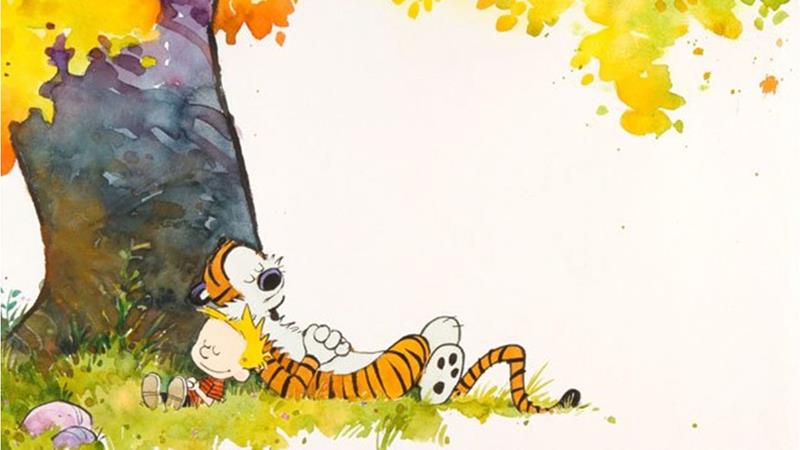 Having prepared the way, Calvin feels he can sell folks on his expert advice and encouragement. He’s on to something. We long for satisfaction and we expect someone to show us where to find it.
Having prepared the way, Calvin feels he can sell folks on his expert advice and encouragement. He’s on to something. We long for satisfaction and we expect someone to show us where to find it.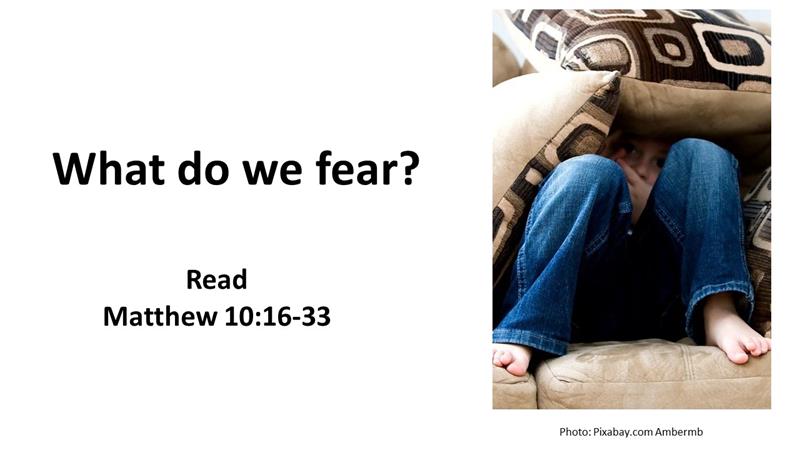 Jeff Garrison
Jeff Garrison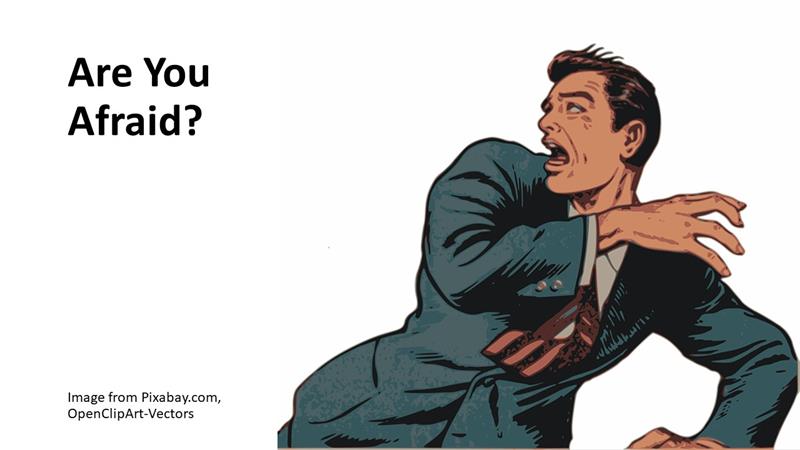

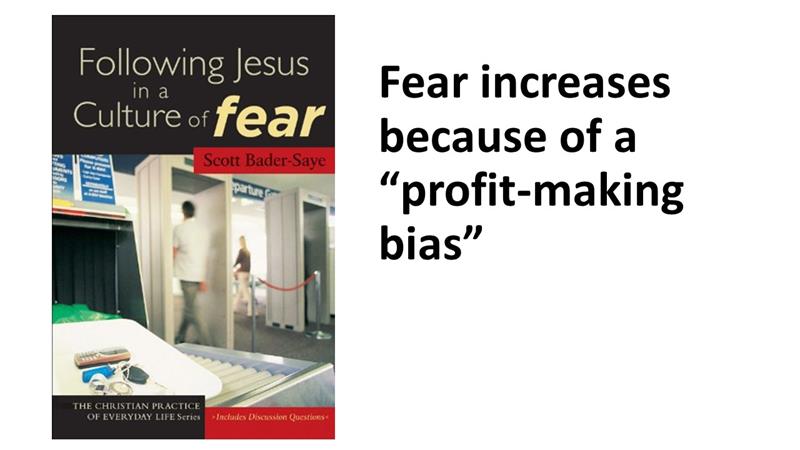
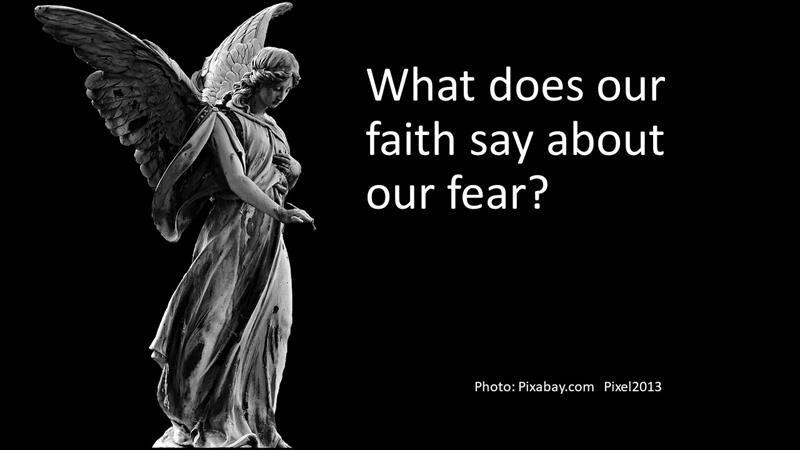
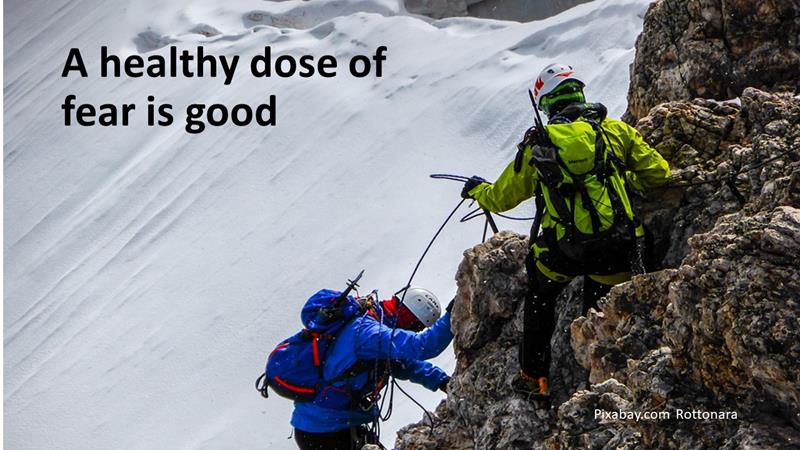
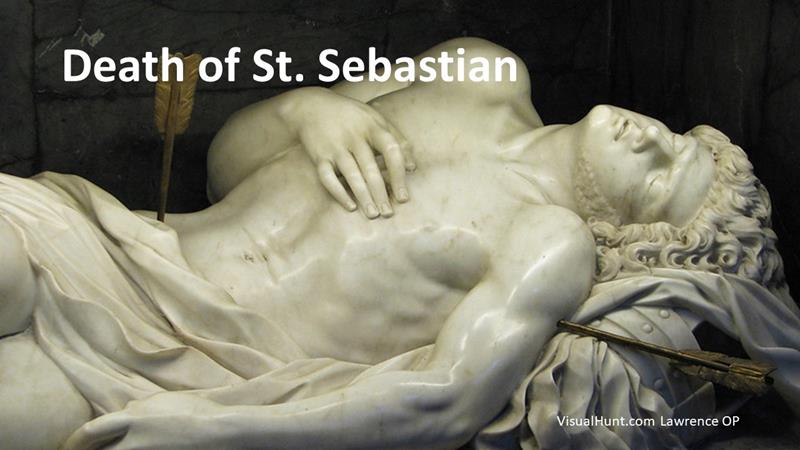
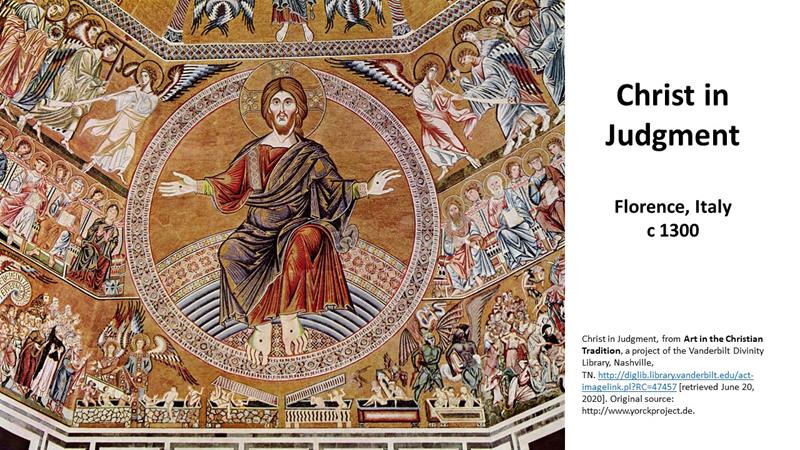
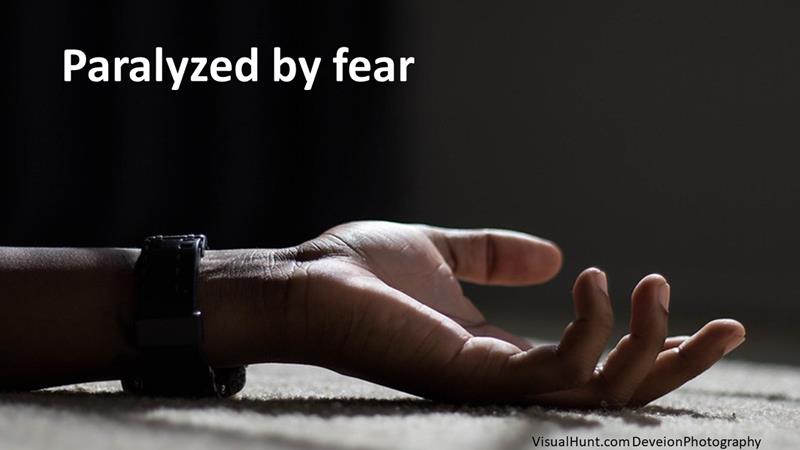
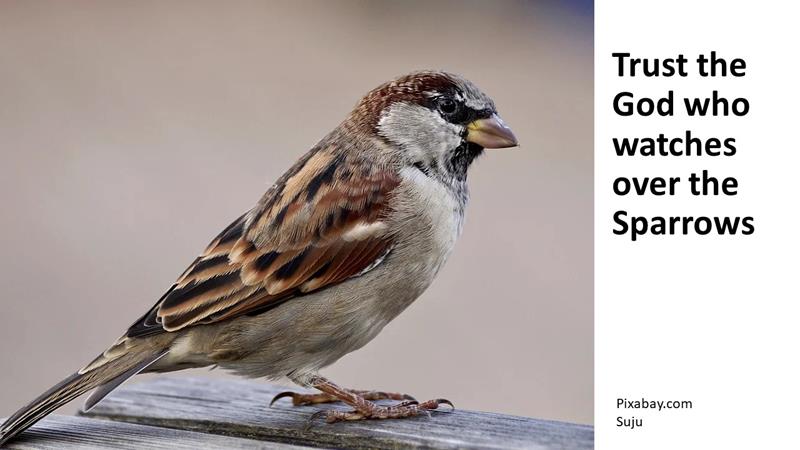
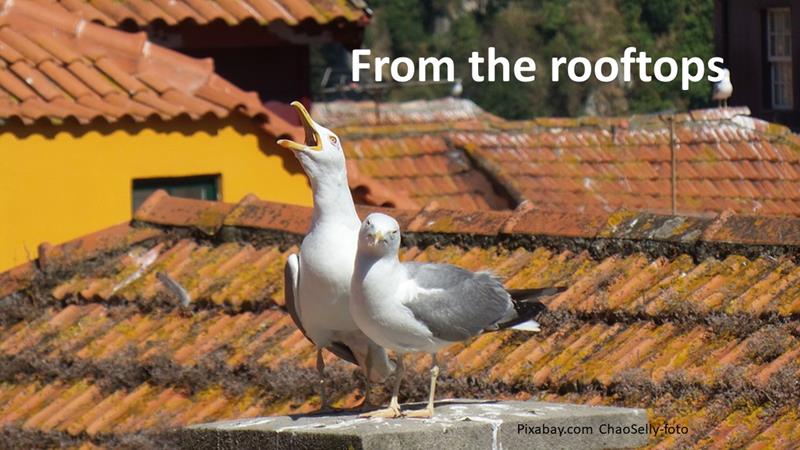
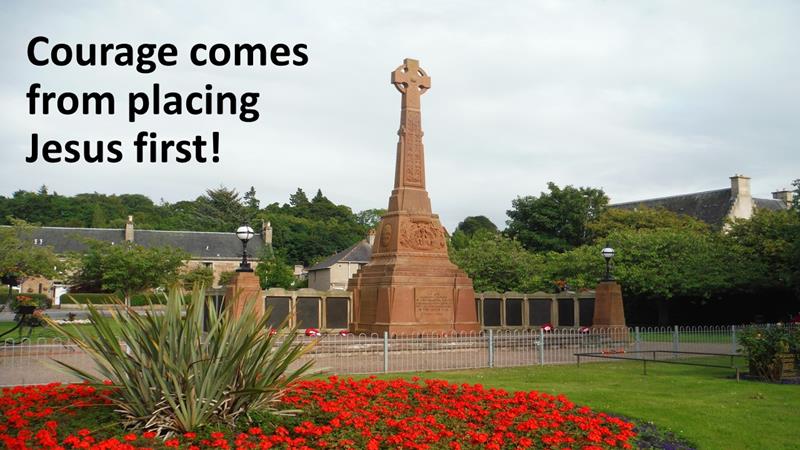
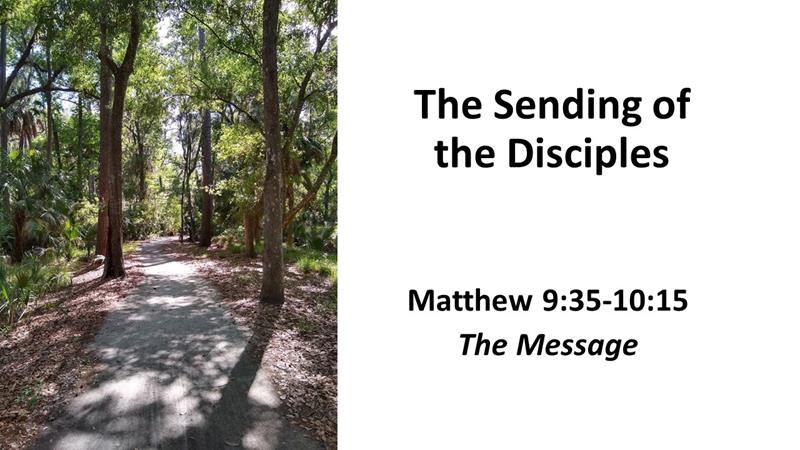
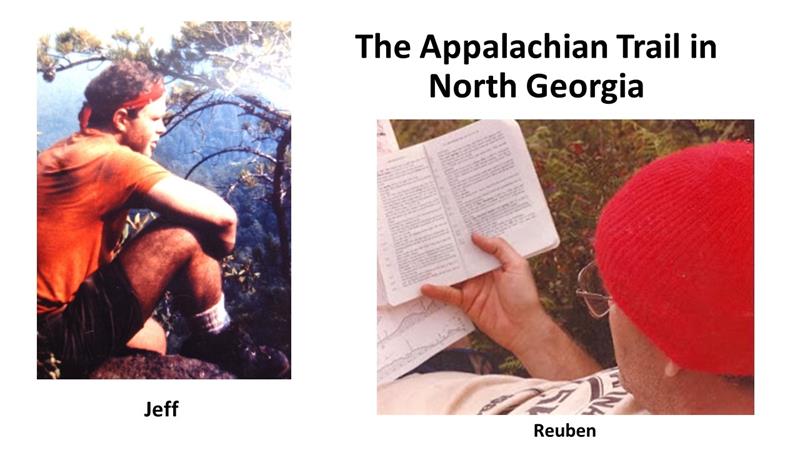
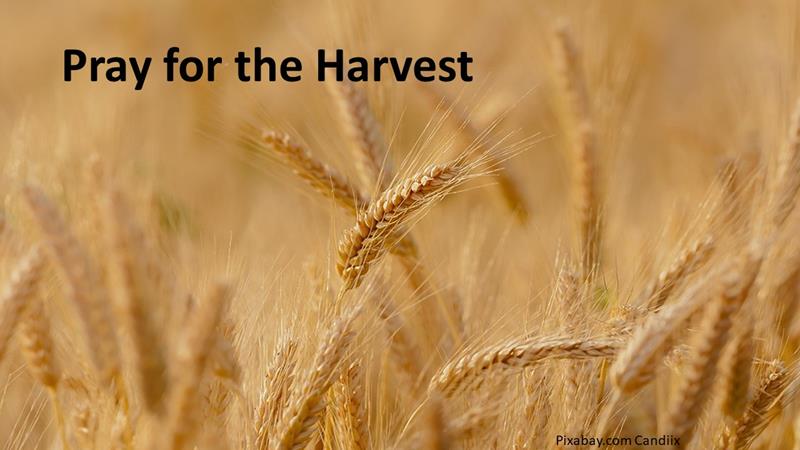
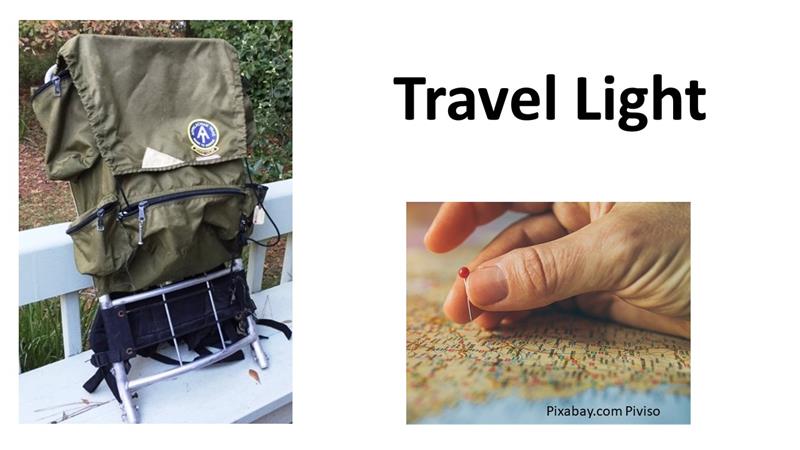 When Jesus sends the disciples, he insists they go light. No extra clothes, no extra gear, no extra food, and no extra cash. They go by themselves, taking only the blessing Jesus bestowed upon them. They are to learn first-hand that Jesus is sufficient—he has given them power over evil as well as the ability to bring healing to those who are sick and to bring to life those who are dead. Going out without possessions, they will be continually reminded that they are dependent upon God and the generosity of others. Furthermore, they would be continually reminded that they are working for Jesus.
When Jesus sends the disciples, he insists they go light. No extra clothes, no extra gear, no extra food, and no extra cash. They go by themselves, taking only the blessing Jesus bestowed upon them. They are to learn first-hand that Jesus is sufficient—he has given them power over evil as well as the ability to bring healing to those who are sick and to bring to life those who are dead. Going out without possessions, they will be continually reminded that they are dependent upon God and the generosity of others. Furthermore, they would be continually reminded that they are working for Jesus.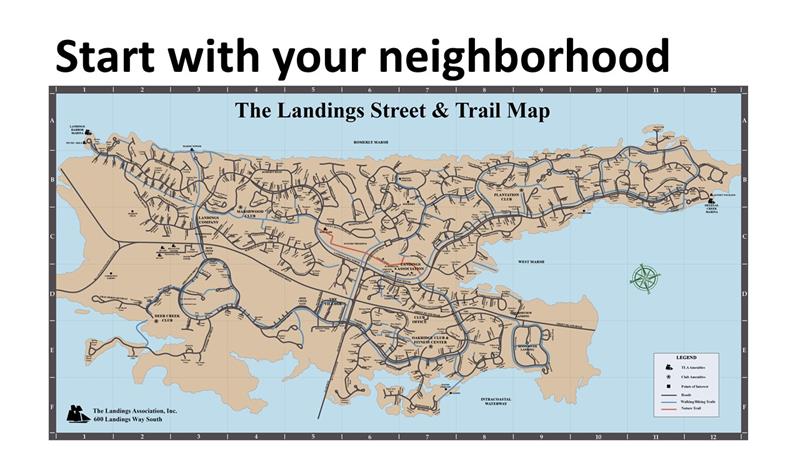 Jesus advice to the disciples is to start in their own neighborhoods. The mission to the Gentiles will come later; they first must take the message to the Jones and Smiths who live down the street. As they travel, they’re to live modestly and with the people. They are to be gracious and content with what they’re offered. They’re to “be courteous.” They’re not out to bring judgment or to browbeat folks, they’re just to go about helping people and sharing with them the good news that the Savior has come. If they’re not welcomed, they’re not to make big deal about it, they’re just to move on to the next neighborhood, not taking it as a failure. They’re not to mope around showing disappointment.
Jesus advice to the disciples is to start in their own neighborhoods. The mission to the Gentiles will come later; they first must take the message to the Jones and Smiths who live down the street. As they travel, they’re to live modestly and with the people. They are to be gracious and content with what they’re offered. They’re to “be courteous.” They’re not out to bring judgment or to browbeat folks, they’re just to go about helping people and sharing with them the good news that the Savior has come. If they’re not welcomed, they’re not to make big deal about it, they’re just to move on to the next neighborhood, not taking it as a failure. They’re not to mope around showing disappointment.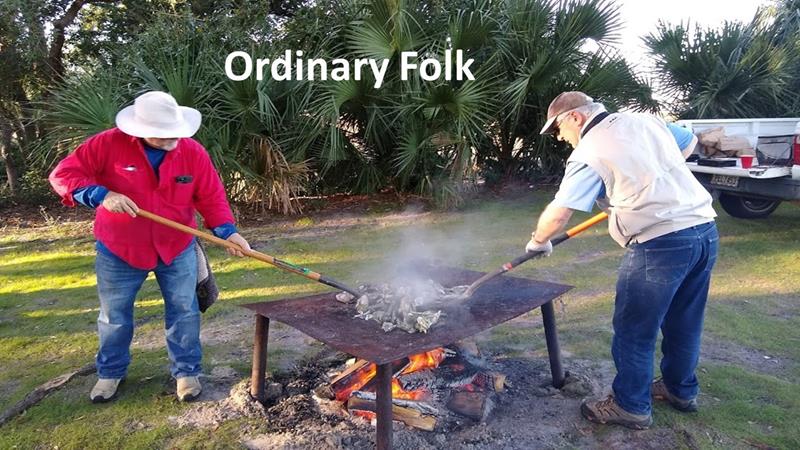
 Another thing we learn that the world isn’t how it should be. We know this is true. If there was any question about it, the last few months dispelled our doubts. But at this point in the First Century, Rome had beaten all its enemies, and those who thought world peace had come. Of course, Jesus sees problems. There are people suffering. Jesus is compassionate. He realizes the struggle many face, especially the poor and slaves. Many are battling demons and the powers of evil. Many are grief-filled, or hurting physically and emotionally. Jesus’ plan is to turn the world upside down, offering grace and hope that can only come from God.
Another thing we learn that the world isn’t how it should be. We know this is true. If there was any question about it, the last few months dispelled our doubts. But at this point in the First Century, Rome had beaten all its enemies, and those who thought world peace had come. Of course, Jesus sees problems. There are people suffering. Jesus is compassionate. He realizes the struggle many face, especially the poor and slaves. Many are battling demons and the powers of evil. Many are grief-filled, or hurting physically and emotionally. Jesus’ plan is to turn the world upside down, offering grace and hope that can only come from God.
 A final truth I want us to consider is that mission involves more than just telling people about Jesus. You know, Reuben and I could have spent all day telling Paul about how much fun we had backpacking and it wouldn’t have made any difference. It was only by helping him go through his gear and showing him how to lighten his load were we able to help. It’s the same with our calling as disciples. We’re not to just share the good news; we’re to demonstrate godly values in our lives and to show others how it can make a difference. That famous saying attributed to Francis of Assisi, “preach the gospel, if necessary, use words,” comes to mind. As the 18th verse reads, “you’ve been treated generously, so live generously.” Doing is just as important as telling, as Jesus makes clear in this passage. He didn’t give the disciples golden words to woo people; he gave them the ability to minister, to heal, and to confront evil.
A final truth I want us to consider is that mission involves more than just telling people about Jesus. You know, Reuben and I could have spent all day telling Paul about how much fun we had backpacking and it wouldn’t have made any difference. It was only by helping him go through his gear and showing him how to lighten his load were we able to help. It’s the same with our calling as disciples. We’re not to just share the good news; we’re to demonstrate godly values in our lives and to show others how it can make a difference. That famous saying attributed to Francis of Assisi, “preach the gospel, if necessary, use words,” comes to mind. As the 18th verse reads, “you’ve been treated generously, so live generously.” Doing is just as important as telling, as Jesus makes clear in this passage. He didn’t give the disciples golden words to woo people; he gave them the ability to minister, to heal, and to confront evil. This is still our goal. Live simply and generously, ministering to the needs of others. In other words, let the love of Jesus flow from your hearts, and be gracious. These days, the world can use a little help. Let’s flood it with grace. Amen.
This is still our goal. Live simply and generously, ministering to the needs of others. In other words, let the love of Jesus flow from your hearts, and be gracious. These days, the world can use a little help. Let’s flood it with grace. Amen.

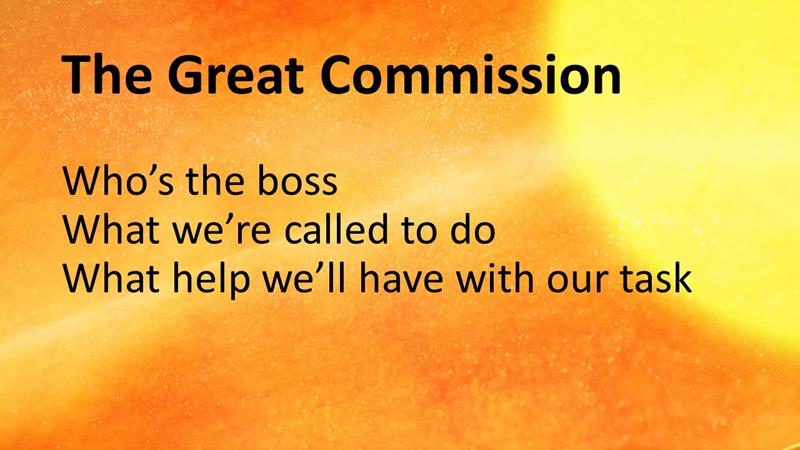
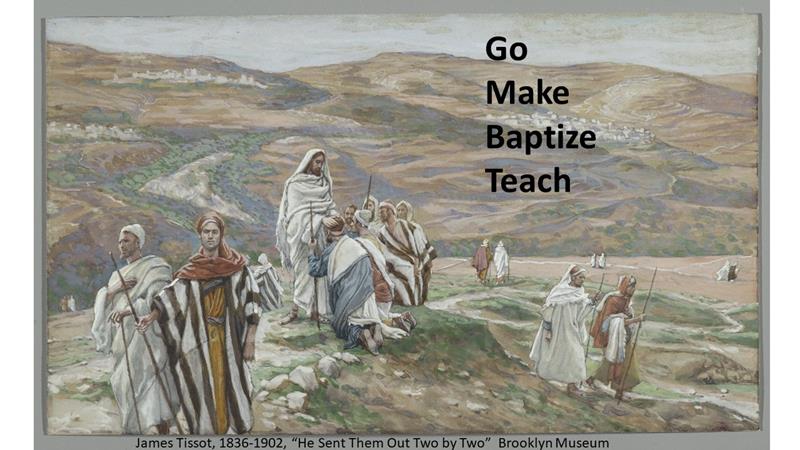


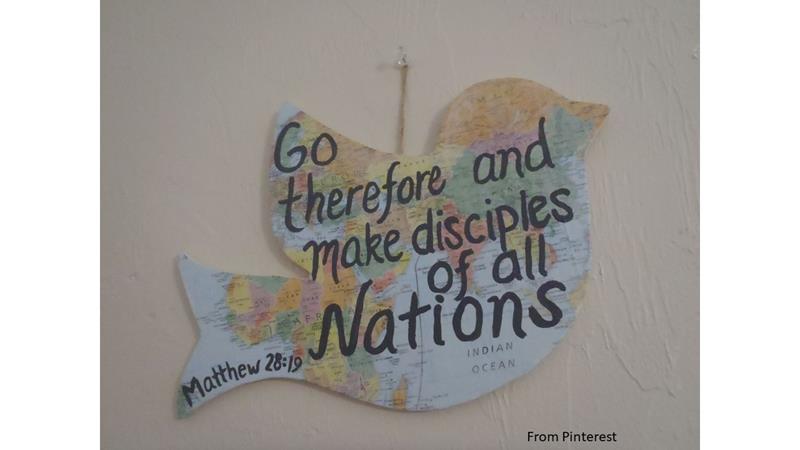

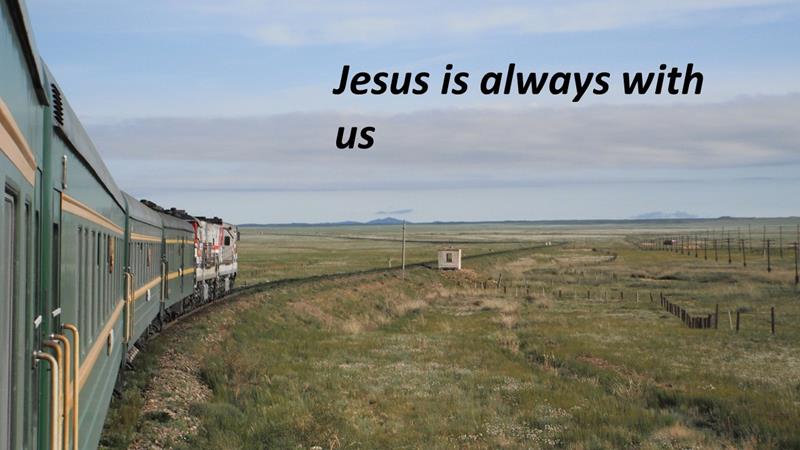 We’re living in trying times, but there is hope in this passage. In the last verse, after telling us that it’s our responsibility to make and baptize and teach disciples, Jesus reminds us that he will be with us till history comes to an end. Jesus is going to be with us wherever we go in this world to do the gospel’s work. That’s the hope we take with us as we challenge such injustice. We’re not alone. We’ll get through this trying time of pandemic and racial tensions if we can just remember the two essential things Jesus taught: Love God and love your neighbor.
We’re living in trying times, but there is hope in this passage. In the last verse, after telling us that it’s our responsibility to make and baptize and teach disciples, Jesus reminds us that he will be with us till history comes to an end. Jesus is going to be with us wherever we go in this world to do the gospel’s work. That’s the hope we take with us as we challenge such injustice. We’re not alone. We’ll get through this trying time of pandemic and racial tensions if we can just remember the two essential things Jesus taught: Love God and love your neighbor. You know, I love my neighbors, but I also love a good tomato sandwich. During this time of the year, when I have tomatoes on the vine, I eat a tomato sandwich every day. I peel the tomatoes and then slice ‘em thick. They are juicy and messy. I take two slices of wheat bread, cover a side of each with Miracle Whip, grind some pepper over it, then lay on the tomatoes and create a sandwich. If I want to be uptown, I might add a little celery seed or some provolone cheese. Its good eating and I tell you this because our passage can be envisioned as a sandwich.
You know, I love my neighbors, but I also love a good tomato sandwich. During this time of the year, when I have tomatoes on the vine, I eat a tomato sandwich every day. I peel the tomatoes and then slice ‘em thick. They are juicy and messy. I take two slices of wheat bread, cover a side of each with Miracle Whip, grind some pepper over it, then lay on the tomatoes and create a sandwich. If I want to be uptown, I might add a little celery seed or some provolone cheese. Its good eating and I tell you this because our passage can be envisioned as a sandwich.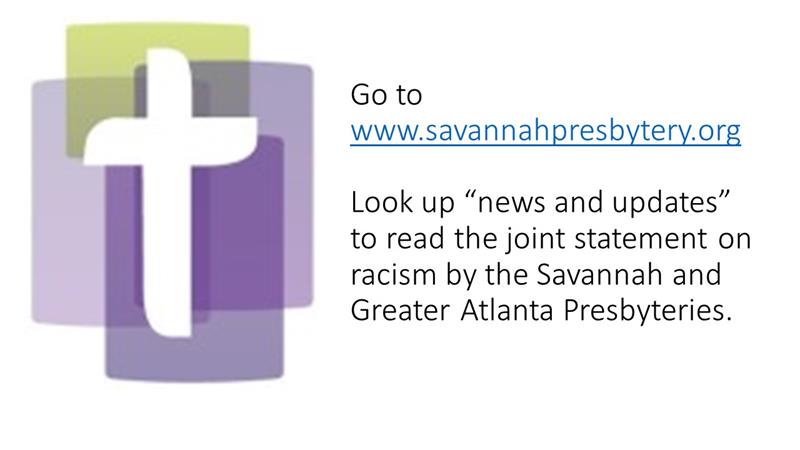 In closing, let me encourage you to do two things. First, go to the Savannah Presbytery website and read our recent statement on racism.
In closing, let me encourage you to do two things. First, go to the Savannah Presbytery website and read our recent statement on racism.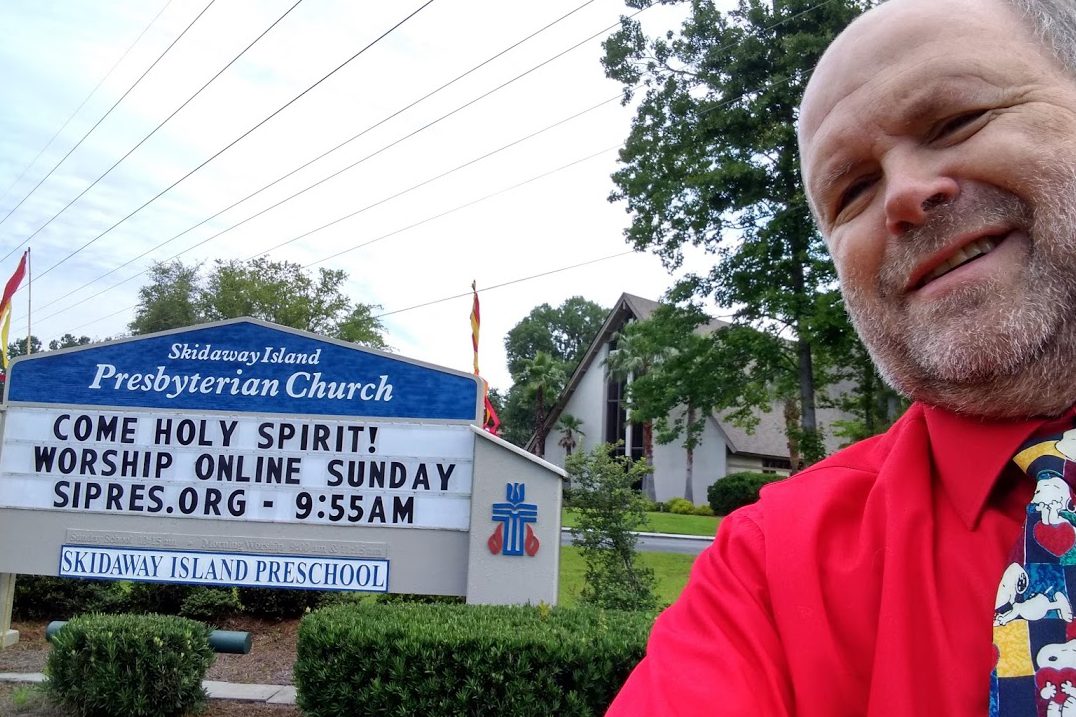

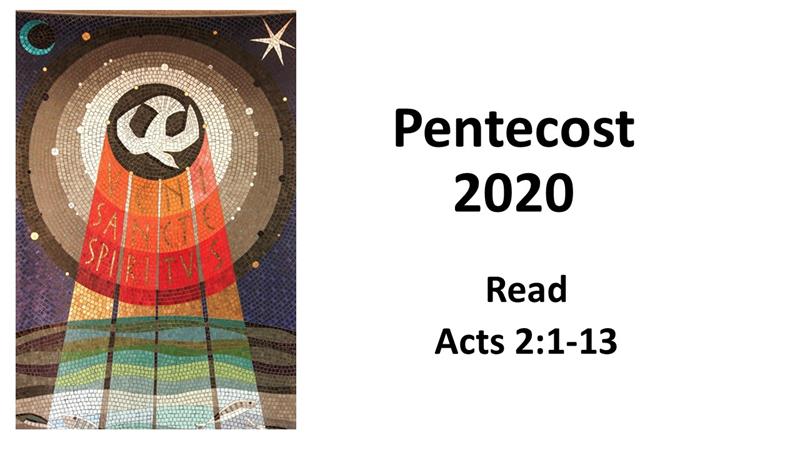
 There was an elderly woman who came home from a Bible study one evening and discovered a burglar in her home. In the darken house, she yelled at the intruder, “Stop, Acts 2:38.” The thief turned and she yelled again, “Stop, Acts 2:38.” He froze. He raised his hands as she calmly called the police. After the officer had handcuffed the man, he asked why he’d surrendered to a woman shouting out a Bible verse. “A Bible verse? I thought she had an axe and two 38s”.
There was an elderly woman who came home from a Bible study one evening and discovered a burglar in her home. In the darken house, she yelled at the intruder, “Stop, Acts 2:38.” The thief turned and she yelled again, “Stop, Acts 2:38.” He froze. He raised his hands as she calmly called the police. After the officer had handcuffed the man, he asked why he’d surrendered to a woman shouting out a Bible verse. “A Bible verse? I thought she had an axe and two 38s”.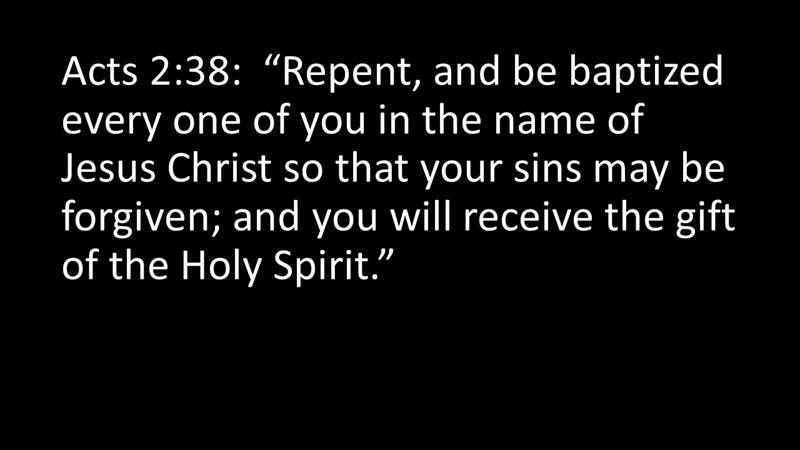 Peter, after his great sermon, that follows the account we’ve just read, called on those within his hearing to “Repent, be baptized, every one of you in the name of Jesus Christ so that your sins may be forgiven and you will receive the power of the Holy Spirit.” Acts 2:38.
Peter, after his great sermon, that follows the account we’ve just read, called on those within his hearing to “Repent, be baptized, every one of you in the name of Jesus Christ so that your sins may be forgiven and you will receive the power of the Holy Spirit.” Acts 2:38.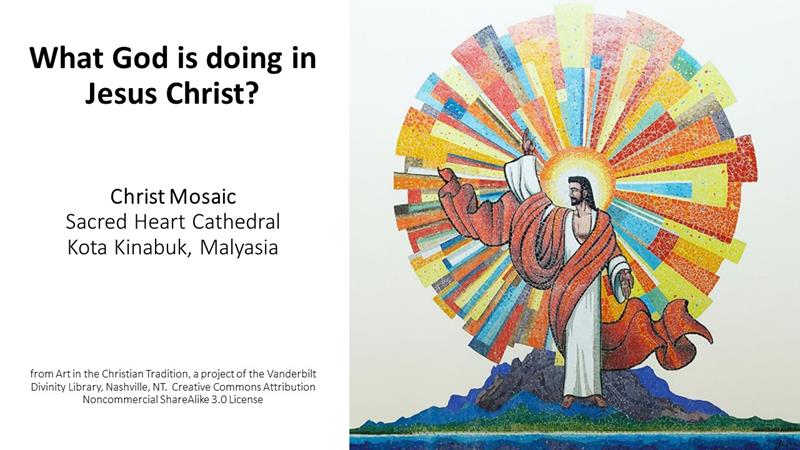 oo often, we think we need force to back up our words, or as in the joke, the possibility of force. But Scripture constantly reminds us our hope is not in what we do or what we have, but in what God has done and is doing in Jesus Christ. We see this with Pentecost, when those flames of the Spirit poured out on a motley group. God takes the initiative. Without God, our efforts are in vain.
oo often, we think we need force to back up our words, or as in the joke, the possibility of force. But Scripture constantly reminds us our hope is not in what we do or what we have, but in what God has done and is doing in Jesus Christ. We see this with Pentecost, when those flames of the Spirit poured out on a motley group. God takes the initiative. Without God, our efforts are in vain.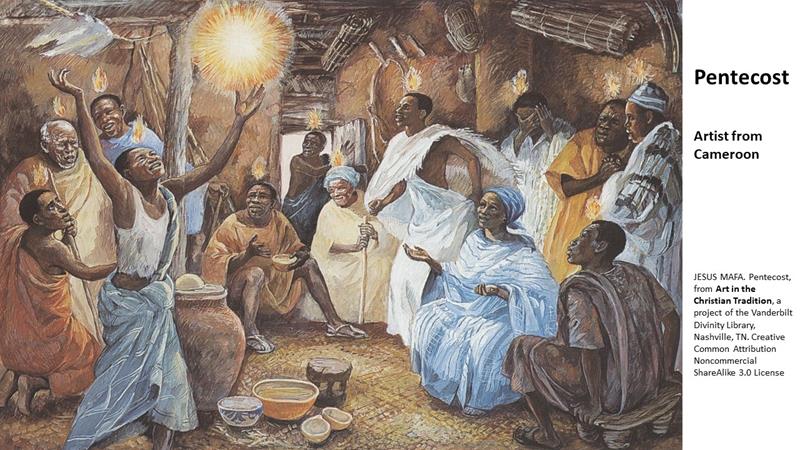 These men and women are not the type of people you’d think could change the world. They’re marginalized. And, to be honest, they don’t change the world. That’s part of the point of the story. God’s the primary actor. Without God’s intervention, nothing would have happened. And the same is true in our lives. God can use us; we don’t have to be sophisticated or multi-talented. The disciples were not great leaders or thinkers, government officials or military heroes. What God needs are people who are faithful. These believers displayed their faithfulness. Many of them were faithful even unto death. With God, all things are possible.
These men and women are not the type of people you’d think could change the world. They’re marginalized. And, to be honest, they don’t change the world. That’s part of the point of the story. God’s the primary actor. Without God’s intervention, nothing would have happened. And the same is true in our lives. God can use us; we don’t have to be sophisticated or multi-talented. The disciples were not great leaders or thinkers, government officials or military heroes. What God needs are people who are faithful. These believers displayed their faithfulness. Many of them were faithful even unto death. With God, all things are possible.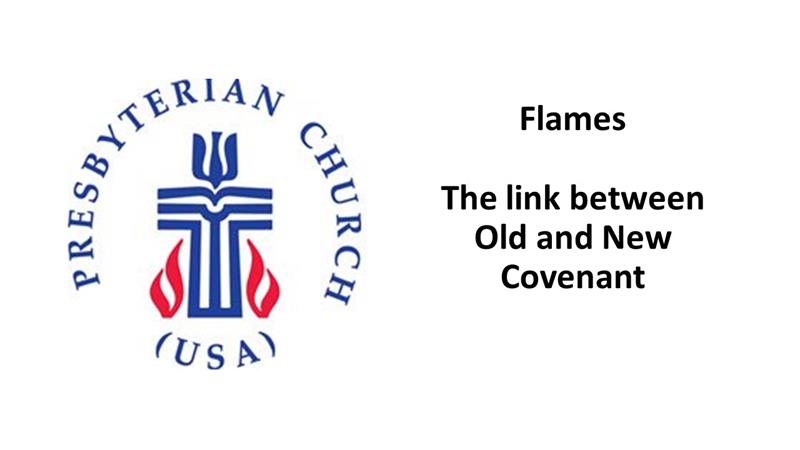
 The final aspect of Pentecost for us to consider is how this event serves as a model for God’s intention for the world. Consider the group who’d gathered on this morning. They were all Palestinian Jews. First century Judaism was more multi-cultural than they were. They gather, a homogeneous lot, without an idea as to what will happen. Soon a violent wind destroys the morning calm. Luke describes the coming of the Spirit as a gale blowing into the house. Picture the curtains blowing, as they used to do in the days before air conditioning when a storm was rising. It was frightening. “What’s happening,” they wonder? Luke goes on to say that the wind was like tongues of fire; like a wildfire that gains momentum consuming all that’s around. And those who had gathered begin to speak, in all different kinds of languages.
The final aspect of Pentecost for us to consider is how this event serves as a model for God’s intention for the world. Consider the group who’d gathered on this morning. They were all Palestinian Jews. First century Judaism was more multi-cultural than they were. They gather, a homogeneous lot, without an idea as to what will happen. Soon a violent wind destroys the morning calm. Luke describes the coming of the Spirit as a gale blowing into the house. Picture the curtains blowing, as they used to do in the days before air conditioning when a storm was rising. It was frightening. “What’s happening,” they wonder? Luke goes on to say that the wind was like tongues of fire; like a wildfire that gains momentum consuming all that’s around. And those who had gathered begin to speak, in all different kinds of languages. Friends, we live in an uncertain time. We must place our faith in God as revealed in Jesus Christ, and live humbly and compassionately, showing the world a different way to live with one another. Violence isn’t the answer. Love is. God loves this world and calls on his church to love the world. When we marginalize others, when we turn our heads at injustice, we fail to live up to our calling.
Friends, we live in an uncertain time. We must place our faith in God as revealed in Jesus Christ, and live humbly and compassionately, showing the world a different way to live with one another. Violence isn’t the answer. Love is. God loves this world and calls on his church to love the world. When we marginalize others, when we turn our heads at injustice, we fail to live up to our calling. Let me tell you a story. I was in Ulaanbaatar, the capital of Mongolia and was walking with other tourists in the business section of the city. Across a four-lane road, coming toward us, was a man and woman. They were arguing. Then the man pulled back and hit the woman with his fist to her head, knocking her down. In shock, we looked at each other. Others had seen it, too, but no one except us-a group of English-speaking tourist-seemed fazed. We were outraged, yet never felt so helpless. If it had been an English-speaking country, we’d all been on the phone with the police. But here, few knew English and we couldn’t speak Mongolian. We needed those tongues of fire!
Let me tell you a story. I was in Ulaanbaatar, the capital of Mongolia and was walking with other tourists in the business section of the city. Across a four-lane road, coming toward us, was a man and woman. They were arguing. Then the man pulled back and hit the woman with his fist to her head, knocking her down. In shock, we looked at each other. Others had seen it, too, but no one except us-a group of English-speaking tourist-seemed fazed. We were outraged, yet never felt so helpless. If it had been an English-speaking country, we’d all been on the phone with the police. But here, few knew English and we couldn’t speak Mongolian. We needed those tongues of fire! Pentecost shows us that not only does God show up, God gives us the tools needed to do the work for which we’re called. That motley group of disciples are able to preach in the languages of those gathered in Jerusalem. Today, we no longer have to wait for God to show up. God’s Spirit’s with us. Unlike Mongolia, in our country, in our neighborhood, most people understand us. We have no excuse. We must be compassionate toward those suffering from COVID-19. We should grieve the deaths of over 100,000 of our citizens, we need to do our part to keep the virus from spreading further, and we need to speak out against racial injustice. At Pentecost, God gave us a vision of the nations and people being brought together. It’s now our turn. We must help make the vision a reality. Amen.
Pentecost shows us that not only does God show up, God gives us the tools needed to do the work for which we’re called. That motley group of disciples are able to preach in the languages of those gathered in Jerusalem. Today, we no longer have to wait for God to show up. God’s Spirit’s with us. Unlike Mongolia, in our country, in our neighborhood, most people understand us. We have no excuse. We must be compassionate toward those suffering from COVID-19. We should grieve the deaths of over 100,000 of our citizens, we need to do our part to keep the virus from spreading further, and we need to speak out against racial injustice. At Pentecost, God gave us a vision of the nations and people being brought together. It’s now our turn. We must help make the vision a reality. Amen.

 Some of you may know the Reverend Proctor Chambless. He’s a retired minister member of the Savannah Presbytery, and has served a number of congregations within our presbytery and across the South. When I came to this presbytery, Proctor was serving an interim position in another presbytery upstate. He wasn’t here. During the first person examined for ordination as a Minister of the Word and Sacrament at Presbytery, someone stood up and said that since Proctor wasn’t present, he was going to ask Proctor’s question. The question: “Do you love Jesus?” The presbytery, as a body, snickered. I realized I wasn’t in on the joke. I asked someone about this and was told that Proctor always asked that question. When Proctor returned, I figured out who he was before I met him. We had another candidate to examine and Proctor stood and asked this question. It’s kind of a fun thing. The rest of us are thinking probing questions to prod the examinee on the fine points of Reformed Theology, as Proctor, with his deep southern drawl, asks the essential question. “Do you love Jesus?” That’s the question Jesus asks Peter three times. And it’s a question we’re all to ask ourselves. Furthermore, as we’re going to see when we delve into this text, there is one way of knowing that we love Jesus. Do we care for others?
Some of you may know the Reverend Proctor Chambless. He’s a retired minister member of the Savannah Presbytery, and has served a number of congregations within our presbytery and across the South. When I came to this presbytery, Proctor was serving an interim position in another presbytery upstate. He wasn’t here. During the first person examined for ordination as a Minister of the Word and Sacrament at Presbytery, someone stood up and said that since Proctor wasn’t present, he was going to ask Proctor’s question. The question: “Do you love Jesus?” The presbytery, as a body, snickered. I realized I wasn’t in on the joke. I asked someone about this and was told that Proctor always asked that question. When Proctor returned, I figured out who he was before I met him. We had another candidate to examine and Proctor stood and asked this question. It’s kind of a fun thing. The rest of us are thinking probing questions to prod the examinee on the fine points of Reformed Theology, as Proctor, with his deep southern drawl, asks the essential question. “Do you love Jesus?” That’s the question Jesus asks Peter three times. And it’s a question we’re all to ask ourselves. Furthermore, as we’re going to see when we delve into this text, there is one way of knowing that we love Jesus. Do we care for others? Jesus uses his full legal name. “Simon, son of John.” Did any of you have parents, or maybe a teacher, who when you were in trouble, would use your full name? “Charles Jeffrey!” I would hear that and immediately knew I had done something wrong. Was Peter in trouble? I don’t think so. But Jesus emphasizes the importance of his questioning. When someone uses your full name, it grabs your attention. Jesus asks Peter if he loves him more than these. We can assume Jesus is pointing over toward the other disciples. We’re told that Peter, in two of the gospels, brags at the Last Supper about how much more he loves Jesus than the others, so much so that he’ll never abandon Jesus.
Jesus uses his full legal name. “Simon, son of John.” Did any of you have parents, or maybe a teacher, who when you were in trouble, would use your full name? “Charles Jeffrey!” I would hear that and immediately knew I had done something wrong. Was Peter in trouble? I don’t think so. But Jesus emphasizes the importance of his questioning. When someone uses your full name, it grabs your attention. Jesus asks Peter if he loves him more than these. We can assume Jesus is pointing over toward the other disciples. We’re told that Peter, in two of the gospels, brags at the Last Supper about how much more he loves Jesus than the others, so much so that he’ll never abandon Jesus. Now, after everything that has happened—the betrayal, the crucifixion, the resurrection—Jesus asks if Peter really does love him and, of course, Peter responds positively. “Yes, Lord, you know that I love you.” Jesus then tells Peter to feed his lambs. This questioning goes on for three times, with just slight variations.
Now, after everything that has happened—the betrayal, the crucifixion, the resurrection—Jesus asks if Peter really does love him and, of course, Peter responds positively. “Yes, Lord, you know that I love you.” Jesus then tells Peter to feed his lambs. This questioning goes on for three times, with just slight variations. We’re not given a sense of just how this prediction of Peter’s death was received, but Peter must have pondered it, for he asks about another of the disciples. Jesus tells Peter a great truth. “Don’t worry about him and his death.” It’s almost as if Jesus is saying, “You have enough troubles. Don’t worry about what God seems to give someone else to worry over.” In other words, accept God’s gift as grace and be thankful.
We’re not given a sense of just how this prediction of Peter’s death was received, but Peter must have pondered it, for he asks about another of the disciples. Jesus tells Peter a great truth. “Don’t worry about him and his death.” It’s almost as if Jesus is saying, “You have enough troubles. Don’t worry about what God seems to give someone else to worry over.” In other words, accept God’s gift as grace and be thankful. Here we are, fifty or so generations Peter.
Here we are, fifty or so generations Peter. During these trying times, when we are hiding out in our homes, we might wonder how we can help anyone. There are ways. The Session, at the request of the Mission and Benevolence Committee, has called for a special offering to help care for the homeless in our community. Do what you can to help. The homeless ministries of Savannah are struggling to meet the needs of those who live under the bridges and on the streets.
During these trying times, when we are hiding out in our homes, we might wonder how we can help anyone. There are ways. The Session, at the request of the Mission and Benevolence Committee, has called for a special offering to help care for the homeless in our community. Do what you can to help. The homeless ministries of Savannah are struggling to meet the needs of those who live under the bridges and on the streets.
 Jeff Garrison
Jeff Garrison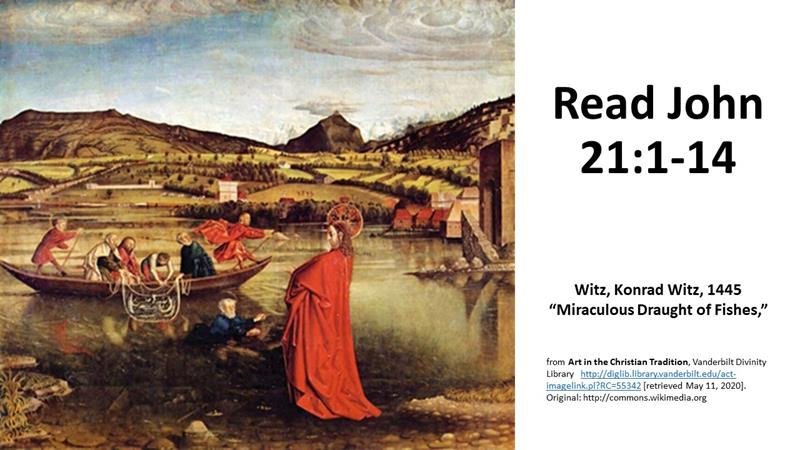
 The best fish are fresh from the water. Even greasy bluefish make a great breakfast when grilled over a charcoal fire on the beach. I was probably 10 or 11 when I first had such a treat. We were fishing on Masonboro Island. It was in the fall, when the bluefish run. We got up when it was still pitch dark and chilly. My dad started a charcoal fire, which helped us stay warm. But instead of sitting around the fire, we soon had lines in the dark water, casting out into surf. In darkness, we fished with bait. On the end of the line, we had a rig with a weight and two hooks, each containing a strip of mullet. When the fish hit, we’d yank the rod to set the hook, then reel hard. Soon, if lucky, a flapping fish could be made out from the distant light of the lantern. We’d have to bring the fish into the light in order to safely get out the hook.
The best fish are fresh from the water. Even greasy bluefish make a great breakfast when grilled over a charcoal fire on the beach. I was probably 10 or 11 when I first had such a treat. We were fishing on Masonboro Island. It was in the fall, when the bluefish run. We got up when it was still pitch dark and chilly. My dad started a charcoal fire, which helped us stay warm. But instead of sitting around the fire, we soon had lines in the dark water, casting out into surf. In darkness, we fished with bait. On the end of the line, we had a rig with a weight and two hooks, each containing a strip of mullet. When the fish hit, we’d yank the rod to set the hook, then reel hard. Soon, if lucky, a flapping fish could be made out from the distant light of the lantern. We’d have to bring the fish into the light in order to safely get out the hook. Leaving our fish on sand, we rebait our hooks and again cast out into the surf. Slowly, the sky changes. The stars began to extinguish themselves. A ribbon of light appears on the horizon, and it gradually growed. We began to be able to make out the beach and could see where the waves were breaking. Soon afterwards, the sun would slowly rise, its rays seemingly racing across the water toward me, as if they whose rays were destined just for me.
Leaving our fish on sand, we rebait our hooks and again cast out into the surf. Slowly, the sky changes. The stars began to extinguish themselves. A ribbon of light appears on the horizon, and it gradually growed. We began to be able to make out the beach and could see where the waves were breaking. Soon afterwards, the sun would slowly rise, its rays seemingly racing across the water toward me, as if they whose rays were destined just for me. When there was a lull in the action, we’d stop and clean a few fish, washing them off in the surf, and then lay them on a grill over the coals. In a few minutes, we’d be “eatin’ good.” Afterwards, we’d change the rigging on our rods to plugs and spoons and head back to the water’s edge. Good memories of good times.
When there was a lull in the action, we’d stop and clean a few fish, washing them off in the surf, and then lay them on a grill over the coals. In a few minutes, we’d be “eatin’ good.” Afterwards, we’d change the rigging on our rods to plugs and spoons and head back to the water’s edge. Good memories of good times. Perhaps it was because I grew up in a home where fishing ranked just below church attendance in priority that Peter’s statement, “I’m going fishing” seems normal. And to the six disciples with him, it sounds like a plan. They head to the water and fished the night. They had terrible luck. That happens. Some mornings there are no bluefish for breakfast.
Perhaps it was because I grew up in a home where fishing ranked just below church attendance in priority that Peter’s statement, “I’m going fishing” seems normal. And to the six disciples with him, it sounds like a plan. They head to the water and fished the night. They had terrible luck. That happens. Some mornings there are no bluefish for breakfast. As I’ve emphasized in these sermons on Jesus’ resurrection, the disciples learn a true lesson. They are not in control. Jesus is in control. We often have this image of going to Jesus, but in truth, Jesus first comes to us. In today’s story, Jesus knows where many of his disciples are. They’re by the lakeshore, fishing, because that’s what they know how to do. So, like when he first called them, he returns to call them again. Next week, we’ll look at how Jesus sends out Peter with a mission, but before we go there, I want us to spend some time in this story.
As I’ve emphasized in these sermons on Jesus’ resurrection, the disciples learn a true lesson. They are not in control. Jesus is in control. We often have this image of going to Jesus, but in truth, Jesus first comes to us. In today’s story, Jesus knows where many of his disciples are. They’re by the lakeshore, fishing, because that’s what they know how to do. So, like when he first called them, he returns to call them again. Next week, we’ll look at how Jesus sends out Peter with a mission, but before we go there, I want us to spend some time in this story. On this night, the fishing hadn’t been good. Jesus then does something else that goes against fishermen etiquette. “Why don’t you fish from the other side?” That’s like suggesting a different lure or fly. “Take off that spinner and put on a jitterbug; or get rid of that wooly bugger and put on a popping bug.” But Jesus’ advice pays off as they catch so many fish the net is about to break. Only then does the Beloved Disciple realizes it’s Jesus. Before he can act, Peter throws on some clothes, jumps in and swims toward shore.
On this night, the fishing hadn’t been good. Jesus then does something else that goes against fishermen etiquette. “Why don’t you fish from the other side?” That’s like suggesting a different lure or fly. “Take off that spinner and put on a jitterbug; or get rid of that wooly bugger and put on a popping bug.” But Jesus’ advice pays off as they catch so many fish the net is about to break. Only then does the Beloved Disciple realizes it’s Jesus. Before he can act, Peter throws on some clothes, jumps in and swims toward shore. Like the other post-resurrection appearances, there’s also bit of mystery. Why do we even have verse twelve? After Jesus calls them in for breakfast, we’re told that no one dared to ask, “Who are you?” They knew it was Jesus, but the text leaves us wondering what’s going on. Furthermore, they don’t recognize Jesus right off. It’s only when they follow his suggestion that they encounter him. There’s probably a lesson in that, too. When we listen to Jesus and do what he says, our relationship grows.
Like the other post-resurrection appearances, there’s also bit of mystery. Why do we even have verse twelve? After Jesus calls them in for breakfast, we’re told that no one dared to ask, “Who are you?” They knew it was Jesus, but the text leaves us wondering what’s going on. Furthermore, they don’t recognize Jesus right off. It’s only when they follow his suggestion that they encounter him. There’s probably a lesson in that, too. When we listen to Jesus and do what he says, our relationship grows. There are three things that happen to the disciples in this passage that we should take to heart. First, Jesus comes to us. Jesus shows up at the most unexpected places. In these stories, he doesn’t show up at church or the synagogue or the temple. Instead, it’s at work, after or before visiting hours. Think about the post-resurrection appearances. Except for meeting the disciples on the road to Emmaus, Jesus always shows up on the shoulders of the day (at daybreak and in the evening). In this case, Jesus arrives as the disciples are finishing up their night shift at a job that wasn’t going to be paying much this day. As followers of Jesus, we must be ready for whenever our Savior decides to pop by. Jesus is not just Lord over Sunday or over religion, he is Lord of all, and can meet us wherever we find ourselves. This is good news in a time that many of us find ourselves prisoners in our own homes! Yes, Jesus can show up even there, you’ll just have to let him in.
There are three things that happen to the disciples in this passage that we should take to heart. First, Jesus comes to us. Jesus shows up at the most unexpected places. In these stories, he doesn’t show up at church or the synagogue or the temple. Instead, it’s at work, after or before visiting hours. Think about the post-resurrection appearances. Except for meeting the disciples on the road to Emmaus, Jesus always shows up on the shoulders of the day (at daybreak and in the evening). In this case, Jesus arrives as the disciples are finishing up their night shift at a job that wasn’t going to be paying much this day. As followers of Jesus, we must be ready for whenever our Savior decides to pop by. Jesus is not just Lord over Sunday or over religion, he is Lord of all, and can meet us wherever we find ourselves. This is good news in a time that many of us find ourselves prisoners in our own homes! Yes, Jesus can show up even there, you’ll just have to let him in. Let me tell you a story to illustrate this. Many of the photos I’ve using today came from a 2008 trip into the Quetico Wilderness in Western Ontario. The guy at the camp stove you see now is Doc Spindler. One morning, he was talking about having pancakes and so proud of himself for prepacking everything he needed. To be helpful, Jim Bruce (who visited us here at SIPC in February and seen in the picture with the full plate) and I went out early that morning, braving the bears as we picked a quart of so of blueberries. We brought them back and Doc was so happy to have blueberries to mix into pancakes. You use what you’re given. Doc knows this. Although a great guy, however, Doc isn’t Jesus. Instead of the baggie with pancake mix, he used a package of meal for frying fish and the blueberry pancakes ended up coming out like goulash. But with a little syrup and butter and an empty stomach, it was still good.
Let me tell you a story to illustrate this. Many of the photos I’ve using today came from a 2008 trip into the Quetico Wilderness in Western Ontario. The guy at the camp stove you see now is Doc Spindler. One morning, he was talking about having pancakes and so proud of himself for prepacking everything he needed. To be helpful, Jim Bruce (who visited us here at SIPC in February and seen in the picture with the full plate) and I went out early that morning, braving the bears as we picked a quart of so of blueberries. We brought them back and Doc was so happy to have blueberries to mix into pancakes. You use what you’re given. Doc knows this. Although a great guy, however, Doc isn’t Jesus. Instead of the baggie with pancake mix, he used a package of meal for frying fish and the blueberry pancakes ended up coming out like goulash. But with a little syrup and butter and an empty stomach, it was still good. Finally, Jesus feeds us. In this case, he fed the disciples a hearty breakfast of fish and bread. But Jesus, who calls all who are weary to accept his yoke, will restore our tired souls and feed our minds and bodies with his presence and comfort.
Finally, Jesus feeds us. In this case, he fed the disciples a hearty breakfast of fish and bread. But Jesus, who calls all who are weary to accept his yoke, will restore our tired souls and feed our minds and bodies with his presence and comfort. Jeff Garrison
Jeff Garrison

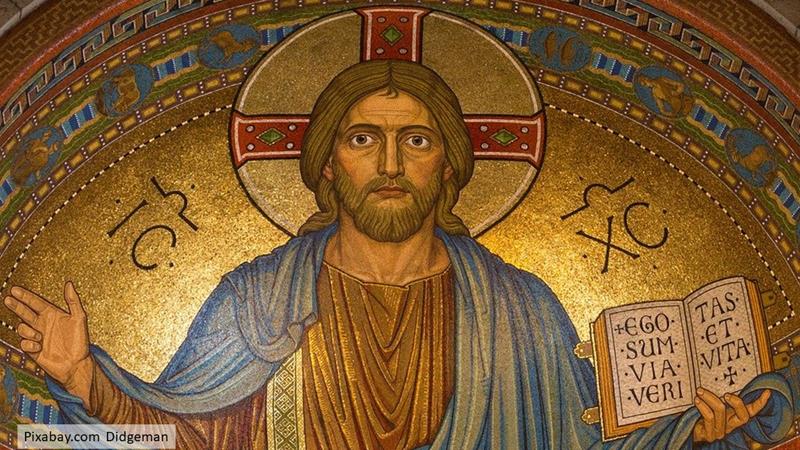 One of the common characteristics of the post-resurrection appearances of Jesus is that no one is looking for him, and no one “finds him.” Instead, Jesus just shows up. The disciples are hearing from the women about Jesus not being in the tomb, reports of him being in Emmaus, and from Simon Peter. But they don’t send out a search party to find Jesus. They’re scared. They lock themselves into a room while discussing what they consider as rumors. And when Jesus mysteriously shows up, they freak out. “It’s a ghost!”
One of the common characteristics of the post-resurrection appearances of Jesus is that no one is looking for him, and no one “finds him.” Instead, Jesus just shows up. The disciples are hearing from the women about Jesus not being in the tomb, reports of him being in Emmaus, and from Simon Peter. But they don’t send out a search party to find Jesus. They’re scared. They lock themselves into a room while discussing what they consider as rumors. And when Jesus mysteriously shows up, they freak out. “It’s a ghost!” One of the lessons we should learn from the resurrection stories is that Jesus controls both his and our destinies. It’s not about us going out looking for God, it’s about God looking for us. There are no barriers that we can put up to avoid God. The disciples discovered this when Jesus pops in. This is good news for those of us sheltering and avoiding contact with others in order to stay healthy during this pandemic. While we might not be able to go to church on Sunday mornings, God can invade the privacy of our homes. We can’t keep God out. As Jesus shows us, God is in control. That’s good, because we can screw things up, so we’re a lot better off depending upon the God who surprises us, than depending on our own inability to bring us back into a relationship with the Almighty. This is what the Presbyterian doctrine of election or predestination is all about.
One of the lessons we should learn from the resurrection stories is that Jesus controls both his and our destinies. It’s not about us going out looking for God, it’s about God looking for us. There are no barriers that we can put up to avoid God. The disciples discovered this when Jesus pops in. This is good news for those of us sheltering and avoiding contact with others in order to stay healthy during this pandemic. While we might not be able to go to church on Sunday mornings, God can invade the privacy of our homes. We can’t keep God out. As Jesus shows us, God is in control. That’s good, because we can screw things up, so we’re a lot better off depending upon the God who surprises us, than depending on our own inability to bring us back into a relationship with the Almighty. This is what the Presbyterian doctrine of election or predestination is all about. But before the disciples can understand this, they must realize who this is that has invaded their meeting. In their mind, Jesus is dead. You don’t come back to this life once grasp the idea that he is risen. First, he asks for a bite to eat. It’s been a while since his last supper. It’s important that they see food going in his mouth (see food, seafood, get it?). Jesus then points to his flesh and bones. Luke wants to assure us that Jesus’ appearance to the disciples after his death isn’t just wishful thinking on their part.
But before the disciples can understand this, they must realize who this is that has invaded their meeting. In their mind, Jesus is dead. You don’t come back to this life once grasp the idea that he is risen. First, he asks for a bite to eat. It’s been a while since his last supper. It’s important that they see food going in his mouth (see food, seafood, get it?). Jesus then points to his flesh and bones. Luke wants to assure us that Jesus’ appearance to the disciples after his death isn’t just wishful thinking on their part. The second thing Jesus does, which is like what he did with those in Emmaus, is to help the disciples understand the scriptures. Jesus wants them to grasp the idea that his suffering, death, and resurrection has been God’s plan.
The second thing Jesus does, which is like what he did with those in Emmaus, is to help the disciples understand the scriptures. Jesus wants them to grasp the idea that his suffering, death, and resurrection has been God’s plan. Of course, because this is God’s doing, not the disciples’, they will need to be given the strength and ability to carry this mission out. Jesus, in his commission to the disciples in Luke’s gospel, is looking forward to the: coming of the Holy Spirit, to Pentecost, after which the disciples will take Jesus’ message to the end of the world.
Of course, because this is God’s doing, not the disciples’, they will need to be given the strength and ability to carry this mission out. Jesus, in his commission to the disciples in Luke’s gospel, is looking forward to the: coming of the Holy Spirit, to Pentecost, after which the disciples will take Jesus’ message to the end of the world. Jesus shows up and calls us because, sooner or later, we are no longer going to be hiding in our home. Life will open back up and when that happens, we need to be ready (just as the disciples were ready on Pentecost) to go into the world and make a difference. Think of this time we’re in as a Sabbath. Like the disciples, we rest today. In a short while, there will be plenty for us to do. As followers of Jesus, we’re to change the world, to make it a kinder more generous and gracious, home. May we catch that vision and live into it. Amen.
Jesus shows up and calls us because, sooner or later, we are no longer going to be hiding in our home. Life will open back up and when that happens, we need to be ready (just as the disciples were ready on Pentecost) to go into the world and make a difference. Think of this time we’re in as a Sabbath. Like the disciples, we rest today. In a short while, there will be plenty for us to do. As followers of Jesus, we’re to change the world, to make it a kinder more generous and gracious, home. May we catch that vision and live into it. Amen.